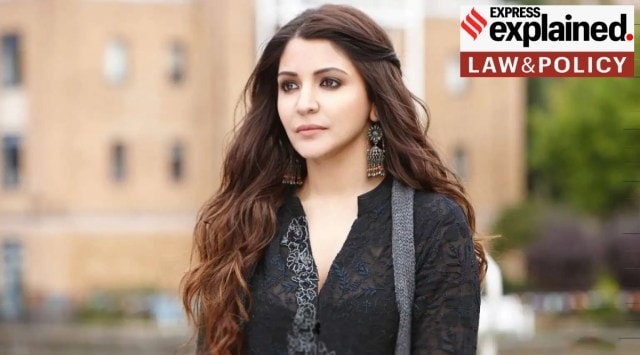Anushka Sharma’s plea on sales tax disposed of by Bombay High Court: What was the case?
Anushka Sharma claimed that the authority had "erroneously" noted that she had acquired "copyright" through endorsements and by anchoring award functions, and had sold or transferred it.
 The authority had levied Rs 1.2 crore sales tax (inclusive of interest) for 2012-13 on Rs 12.3 crore received by actor Anushka Sharma. (File photo)
The authority had levied Rs 1.2 crore sales tax (inclusive of interest) for 2012-13 on Rs 12.3 crore received by actor Anushka Sharma. (File photo) Would an actor hold a copyright for her performances and is she liable to pay sales tax for it? The Bombay High Court heard a case last week involving actor Anushka Sharma in which she challenged the sales tax levied against her income from advertisements and performances in award shows. The case raises questions on how intellectual property is treated for taxation purposes.
What is the case about?
Actor Anushka Sharma had moved the Bombay High Court challenging the Mazgaon sales tax deputy commissioner’s orders raising dues for 2012-13 and 2013-14 under the Maharashtra Value Added Tax (MVAT) Act.
The state had levied Rs 1.2 crore sales tax (inclusive of interest) for 2012-13 on Rs 12.3 crore revenue received by Sharma. For 2013-14, Rs 1.6 crore tax was levied on her for the Rs 17 crore she had received. This would be remuneration for advertisements and performances at award shows received by the actor.
At the heart of the issue is how tax officials interpret a key change in copyright law brought in 2012 to protect rights of artists.
Why was the sales tax levied against Sharma?
Sharma’s remuneration is from tripartite agreements with Yash Raj Films (YRF) which was her agent and a third party for ad films, stage shows etc. As per the tax department, Sharma, who has the “first owner of copyright” on all her artistic work is selling that right through these agreements and hence is liable to pay sales tax and not just treat it as personal income.
Sales tax is an indirect tax charged on sale of goods affected by individuals and/or entities engaged in selling activities. This is now replaced by the Goods and Services Tax. Income tax, on the other hand, is a direct tax paid on income generated.
In an written response, the taxmen claimed before the Bombay High Court that the actor was essentially selling her copyright and had to pay an indirect tax on it. Section 6(1) of the Maharashtra Value Added Tax Act, 2002 provides there shall be levied a sales tax on the turnover of sales of goods.
They argued that she was providing services and earning income through a “contract for services” and not through “contract of services,” where she is not employed with anyone.
A contract for service is when one wants to engage the services of a third-party as an independent contractor for a specific purpose. A contract of services is for example, an employment contract.
“Anushka Sharma is an actor by profession and a copyright is created in her artistic performance, which is recorded by various company clients and used for commercial purposes… In Anushka Sharma’s case, along with her artistic performance, the copyright gets transferred and used by her client company for which she is receiving valuable consideration,” the taxmen argued.
What is Sharma’s case?
The actor moved the High Court arguing that the taxmen have ‘erroneously’ noted that she had acquired ‘copyright’ through endorsements and by anchoring award functions, and had sold or transferred it.
As per the law, unless it is established that there is a sale of goods, sales tax cannot be levied.
The petition claimed that, as the actor does not possess any copyright in the film, the question of transferring/selling the ‘copyright’ to any other person or to the producer does not arise. Therefore, the conclusion drawn by the assessing officer that she has transferred/sold copyrights has no factual and legal base.
The actor argued that as per Section 2 (d) of the Copyright Act, it was the producers of the shows, who are original creators, who always owned the respective videos’ copyright and that she could not sell or transfer it. She said that any actor who performed any role in the film cannot be called a creator or producer of the film and hence does not own a copyright in the film.
Sharma said that she is a ‘performer’ under the law and acquired performer’s rights under section 38 and 38A of Copyright Act. However, she added the “performer’s rights vested in her are not copyrights and they are not capable of being transferred.”
What are performer’s rights?
Section 38 of the Copyright Act, 1957, as amended in 2012, recognises “Performer’s Rights” where the performer engages in any performance including, literary work, song, movie and same subsists in the concerned person for 50 years from the “beginning of the calendar year next following the year in which the performance is made”. This amendment was brought in 2012 to protect artists For example, if copyright of a song is licensed, it would not just be the producer who would get a royalty but the singer and lyricist would also be entitled for a share.
Crucially, the rights under this provision cannot be waived off or diluted through a contract, which means performers’ rights cannot be transferred or sold through an agreement. This was done to ensure production houses cannot simply buy out an artist and her work remains with her.
What did the Bombay High Court decide?
The Bombay High Court did not go into the merits of the case since under the Maharashtra Value Added Tax Act, there is a specific process of appeal against the assessment. The taxmen objected to Sharma’s plea since she had alternative, efficacious remedy under the law.
However, the law requires the actor to deposit 10% of the tax levied before the appeal can be heard. The HC intervention would have allowed her to bypass that requirement.



- 01
- 02
- 03
- 04
- 05



































